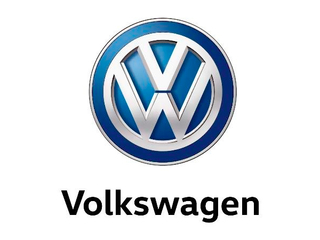Forum Ventures report: where health systems say innovation is most needed
The report outlined four areas as a guide to help startups to sell into these systems
Read more... It’s not just the foodtech startups. We’re going to start seeing more and more signs of consolidation in the sharing economy space.
It’s not just the foodtech startups. We’re going to start seeing more and more signs of consolidation in the sharing economy space.
The latest sign comes via reports that Lyft has hired Qatalyst Partners, a boutique investment bank specifically focused on helping technology companies find buyers.
Qatalyst has a hand in the pending $26.2 billion deal for Microsoft to buy LinkedIn, which was first reported a couple weeks ago. (Qatalyst actually has the deal value listed at $28.1 billion.) Other prominent tech M&A deals handled by the the firm include Expedia's $3.9 billion purchase of HomeAway (in the travel space), PayPal’s $890 million purchase of Xoom (in fintech), and Zillow’s $3.5 billion purchase of Trulia (in real estate).
I’ve reached out to Lyft to confirm that they’re working with Qatalyst and to glean more details, and will update when I hear back.
In a sense, there has already been a growing trend toward consolidation wherever auto and tech cross paths. Last year, Lyft announced partnerships with several international ridesharing services, including Didi in China and Grab in Southeast Asia. More recently, Lyft, Uber, and Gett (an on-demand black car and taxi app) have each secured investments with massive automakers across the world—General Motors, Toyota, and Volkswagen, respectively—in order to establish mutually beneficial relationships.
With the venture capital climate cooled down and the IPO market even colder, one has to wonder what will become of all the unicorn tech companies that easily raised funding at sky high valuations in the past couple years.
Lyft was valued at $5.5 billion in its last funding round—would Qatalyst be able to find a buyer willing to pay that much for the company? Here’s a look at the other private sharing economy/on-demand companies and their valuations:
And that's just a sliver of the nearly 200 unicorn companies roaming around today.
As John Doerr of Kleiner Perkins Caufield & Byers explained at our Post Seed event last December, the “basic math” behind the unicorn problem is that, given that most companies exit through acquisition (not IPO), these companies need to find buyers. But how many actual buyers are there for companies with these sky high valuations?
While many in the industry naturally associate Qatalyst with M&A deals, it’s not necessarily what Lyft is after. It could be that the company just needs a new infusion of capital; even though it just raised a $1 billion financing round in January led by General Motors (GM), operating a sharing economy business (especially in competition with Uber) burns a lot of money.
Qatalyst also helps arrange strategic investments, as in the case of Tencent’s $50 million investment in Kik. That said, the overwhelming majority of deals managed by Qatalyst involve a massive tech corporation purchasing a fast-growing, emerging tech company.
The report outlined four areas as a guide to help startups to sell into these systems
Read more...Flyte delivers mechanotherapy transvaginally to the pelvic floor
Read more...The country will need an additional 203,200 RNs each year until 2031 to fill staffing shortages
Read more...Startup/Business
Joined Vator on
Uber is a ridesharing service headquartered in San Francisco, United States, which operates in multiple international cities. The company uses a smartphone application to arrange rides between riders and drivers.
Startup/Business
Joined Vator on
Lyft is a peer-to-peer transportation platform that connects passengers who need rides with drivers willing to provide rides using their own personal vehicles.










